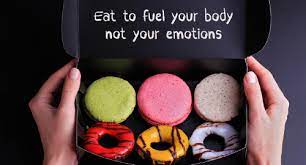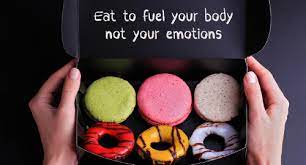
Top 10 Tips for Effective Weight Loss

Introduction
Top 10 Tips for Effective Weight Loss Weight loss is a common goal for many individuals striving to lead a healthier lifestyle. While the journey to shed unwanted pounds can be challenging, incorporating the right strategies and habits can make the process more manageable and successful. In this comprehensive guide, we will explore the top 10 tips for effective weight loss, focusing on sustainable and science-backed practices. By adopting these tips into your daily routine, you can achieve your weight loss goals and improve your overall well-being.
Set Realistic Goals

Top 10 Tips for Effective Weight Loss The first step in any weight loss journey is setting realistic and achievable goals. Rather than aiming for rapid, drastic changes, focus on creating sustainable habits that you can maintain in the long term. Setting smaller, short-term goals that lead to your ultimate objective can help you stay motivated and track your progress effectively.
Create a Balanced Diet Plan

Diet plays a pivotal role in weight loss. Instead of resorting to extreme diets or strict calorie restrictions, opt for a balanced and nutrient-dense meal plan. Incorporate a variety of fruits, vegetables, whole grains, lean proteins, and healthy fats into your diet. Portion control is equally crucial, as overeating, even with healthy foods, can hinder weight loss progress.
Stay Hydrated

Water is essential for overall health and can significantly support your weight loss efforts. Often, thirst can be mistaken for hunger, leading to unnecessary snacking. By staying adequately hydrated throughout the day, you can curb these false hunger signals and support your body’s natural detoxification processes.
Prioritize Regular Exercise

Exercise is a crucial component of weight loss and overall well-being. Engage in a combination of cardiovascular activities, such as jogging, cycling, or swimming, and strength training exercises to build lean muscle mass. Regular physical activity not only aids weight loss but also boosts metabolism and promotes mental well-being.
Get Sufficient Sleep

Quality sleep is often overlooked but is vital for weight loss success. Lack of sleep can disrupt hormonal balances, leading to increased hunger and decreased satiety. Aim for 7-9 hours of uninterrupted sleep per night to optimize your body’s ability to regulate hunger hormones and support weight loss.
Practice Mindful Eating

Mindful eating involves being present and fully aware of your eating habits. Avoid distractions while eating, such as watching TV or using electronic devices. Chew your food slowly, savoring each bite, and pay attention to your body’s hunger and fullness cues. Mindful eating can help prevent overeating and promote healthier food choices.
Reduce Sugar and Processed Foods

Excessive sugar and processed foods can contribute to weight gain and various health issues. Cut back on sugary beverages, snacks, and processed foods high in additives and preservatives. Instead, opt for whole, unprocessed foods that provide essential nutrients without empty calories.
Manage Stress Effectively

Stress can lead to emotional eating and unhealthy food choices. Develop strategies to manage stress, such as meditation, deep breathing exercises, yoga, or spending time in nature. By addressing stress levels, you can avoid turning to food as a coping mechanism and better focus on your weight loss journey.
Track Your Progress

Keeping track of your weight loss progress can be motivating and help you identify what works best for your body. Use a journal, mobile app, or a fitness tracker to record your meals, exercise routines, and measurements. Seeing the positive changes over time can boost your confidence and determination.
Seek Support and Accountability
Weight loss can be challenging, but you don’t have to go through it alone. Seek support from friends, family, or join a weight loss group where you can share experiences and receive encouragement. Having a support system can keep you accountable and motivated throughout your journey.
Top 10 Tips for Effective Weight Loss
Weight loss remains a significant health concern for many individuals around the world. Achieving and maintaining a healthy weight is essential for overall well-being and can reduce the risk of various chronic diseases. In this comprehensive guide, we will delve deeper into the top 10 tips for effective weight loss and provide additional insights to support your efforts.
Set Realistic Goals (Continued):
When setting weight loss goals, consider the SMART approach: Specific, Measurable, Achievable, Relevant, and Time-bound. Define specific targets such as the number of pounds you want to lose, and make sure they are achievable within a reasonable time frame. Moreover, set non-scale goals, such as increasing your physical activity level or improving your energy levels, as these can be equally motivating throughout your journey.
Create a Balanced Diet Plan (Continued):
A balanced diet plan should not involve extreme restrictions or cutting out entire food groups. Instead, focus on moderation and portion control. Incorporate a variety of colorful fruits and vegetables into your meals, as they are rich in vitamins, minerals, and antioxidants while being low in calories. Opt for whole grains like brown rice, quinoa, and whole wheat bread over refined grains to boost your fiber intake and promote satiety.
Lean proteins, such as chicken, turkey, fish, and plant-based sources like beans and lentils, are crucial for maintaining muscle mass and supporting your metabolism. Additionally, include healthy fats from sources like avocados, nuts, seeds, and olive oil, as they provide essential nutrients and help you feel satisfied after meals.
Stay Hydrated (Continued):
Water is your best friend when it comes to weight loss. Drinking an adequate amount of water throughout the day can help control your appetite, improve metabolism, and enhance the overall efficiency of bodily functions. Consider drinking a glass of water before each meal to help you feel fuller and potentially reduce calorie intake during the meal.
Prioritize Regular Exercise (Continued):
Incorporate both cardiovascular exercises and strength training into your fitness routine. Cardio workouts like running, cycling, or dancing help burn calories and improve heart health, while strength training builds lean muscle mass, which boosts your metabolism even at rest. Aim for at least 150 minutes of moderate-intensity aerobic activity or 75 minutes of vigorous-intensity aerobic activity per week, combined with muscle-strengthening activities on two or more days per week.
Get Sufficient Sleep (Continued):
Lack of sleep not only affects your energy levels and mood but can also hinder weight loss efforts. During sleep, your body repairs and restores itself, and this includes regulating hormones that affect hunger and appetite. Aim for a consistent sleep schedule, create a relaxing bedtime routine, and ensure your sleeping environment is comfortable and conducive to restful sleep.
Practice Mindful Eating (Continued):
Mindful eating involves being fully present during meals, paying attention to the taste, texture, and aroma of your food. Slow down your eating pace, chew thoroughly, and avoid distractions such as TV or mobile devices. By savoring each bite, you become more attuned to your body’s hunger and fullness cues, which can prevent overeating and emotional eating.
Reduce Sugar and Processed Foods (Continued):
Added sugars and highly processed foods contribute to empty calories and can lead to weight gain. Be mindful of hidden sugars in packaged foods like sauces, dressings, and snacks. Instead, satisfy your sweet cravings with naturally sweet fruits, and opt for whole, unprocessed foods that are rich in nutrients and support your weight loss journey.
Manage Stress Effectively (Continued):
Stress triggers the release of cortisol, a hormone that can lead to weight gain, especially around the abdominal area. Engage in stress-reducing activities like meditation, yoga, deep breathing exercises, or spending time in nature. Regular physical activity, such as a brisk walk or a workout session, can also be an effective stress-reliever.
Track Your Progress (Continued):
Keeping track of your food intake, exercise routine, and progress is essential for successful weight loss. Use a food journal or a mobile app to record your meals, snacks, and calorie intake. Additionally, consider taking progress photos and measurements to monitor changes in your body composition over time.
Seek Support and Accountability (Continued):
Having a support system can significantly impact your weight loss journey. Share your goals with friends, family, or join a weight loss group where you can find like-minded individuals to motivate and inspire you. Moreover, consider seeking professional help from a registered dietitian or a personal trainer to receive personalized guidance and support.
Additional Tips for Weight Loss:

Be Consistent with Your Efforts:
Top 10 Tips for Effective Weight Loss Consistency is key to achieving and maintaining weight loss. Adopting healthy habits is a lifestyle change, not a temporary fix. Stick to your diet and exercise plan even on challenging days, and remember that small, consistent efforts yield significant results over time.
Be Mindful of Liquid Calories (Continued):
Liquid calories from sugary beverages, sodas, energy drinks, and alcoholic beverages can quickly add up without providing a feeling of fullness. Replace these high-calorie drinks with water, herbal teas, or low-calorie options to help control your calorie intake.
Practice Portion Control:
Be mindful of portion sizes, especially when dining out or enjoying your favorite treats. Restaurants often serve large portions, which can lead to overeating. Consider sharing meals or taking leftovers home to avoid excessive calorie consumption.
Avoid Crash Diets:
Extreme diets that severely restrict calories or eliminate entire food groups are not sustainable and can be harmful to your health. Instead, focus on creating a well-balanced and nourishing eating plan that you can maintain in the long term.
Include Regular Physical Activity in Your Day:
Apart from scheduled workouts, find ways to stay active throughout your day. Take the stairs instead of the elevator, walk or cycle to nearby places, and find activities you enjoy, such as dancing or gardening, to keep yourself moving.
Learn to Differentiate Between Hunger and Emotional Eating:
Emotional eating is a common pitfall during weight loss. Learn to recognize true hunger versus emotional triggers like stress, boredom, or sadness. Find alternative ways to cope with emotions, such as calling a friend, going for a walk, or practicing relaxation techniques.
Limit Processed and Packaged Foods:
Processed foods are often high in unhealthy fats, sodium, and additives. Opt for whole, natural foods that are nutrient-dense and support your body’s nutritional needs.
Be Patient and Persistent:
Weight loss may not happen overnight, and there will be ups and downs along the way. Stay patient and persistent, and remember that sustainable weight loss is a gradual process that requires dedication and commitment.
Celebrate Non-Scale Victories:
Recognize and celebrate achievements beyond the number on the scale. Improved energy levels, increased strength, and better overall health are all significant milestones in your weight loss journey.
Avoid Comparisons:
Every individual’s weight loss journey is unique, and progress may vary from person to person. Avoid comparing yourself to others and focus on your own goals and improvements.
Incorporate Intuitive Eating:
Intuitive eating involves listening to your body’s hunger and fullness cues while being mindful of your food choices. Instead of adhering to strict meal plans, trust your body’s signals to guide your eating habits. Eat when you are genuinely hungry and stop when you feel comfortably satisfied. This approach fosters a healthy relationship with food and helps prevent overeating or undereating.
Get Moving Throughout the Day:
Incorporate movement into your daily routine beyond structured workouts. Set reminders to take short breaks and stretch if you have a sedentary job. Stand up and walk around during phone calls or meetings. These small bursts of activity can add up and contribute to your overall daily calorie expenditure.
Stay Accountable with Food Journaling:
Keeping a food journal can be a powerful tool for weight loss. Write down everything you eat and drink, including portion sizes and snacks. This practice creates awareness of your eating habits and helps identify areas where you can make healthier choices or cut unnecessary calories.
Spice Up Your Meals:
Herbs and spices not only add flavor to your meals but can also boost your metabolism and enhance satiety. Certain spices like cayenne pepper, ginger, and cinnamon have thermogenic properties, meaning they can temporarily increase calorie burning after consumption.
Limit Nighttime Snacking:
Late-night snacking can be a challenge for many people, leading to extra calorie consumption and disrupted sleep patterns. To curb nighttime cravings, try brushing your teeth after dinner, as the minty flavor can reduce the desire to eat. Additionally, engage in relaxing activities or have a cup of herbal tea to distract yourself from the urge to snack.
Find Supportive Social Circles:
Surround yourself with people who support your weight loss goals and encourage healthy behaviors. Engaging in activities with like-minded individuals can foster a positive atmosphere and make your journey more enjoyable.
Try Intermittent Fasting:
Intermittent fasting is an eating pattern that alternates between periods of eating and fasting. It can be an effective method for some individuals to control calorie intake and improve metabolic health. However, it may not be suitable for everyone, so consult with a healthcare professional before starting an intermittent fasting regimen.
Plan Your Indulgences:
Allowing yourself occasional treats or favorite foods can help you stay on track with your weight loss journey. Plan your indulgences mindfully and savor them guilt-free. Moderation is key, and treating yourself on occasion can prevent feelings of deprivation and help maintain long-term adherence to your healthy eating plan.
Practice Mindful Food Shopping:
Make a grocery list before going to the store and stick to it. Avoid shopping on an empty stomach, as this can lead to impulsive purchases of unhealthy snacks. Opt for whole foods found along the perimeter of the store, such as fresh produce, lean proteins, and dairy products, while minimizing purchases of processed and sugary items from the aisles.
Get Creative in the Kitchen:
Experiment with healthy cooking techniques and recipes to keep your meals exciting and enjoyable. Look for healthier alternatives to your favorite dishes or try adding new fruits, vegetables, or herbs to create delicious and nutritious meals.
Reward Yourself Non-Food Ways:

Celebrate your progress with non-food rewards, such as buying a new workout outfit, treating yourself to a spa day, or spending quality time with loved ones. These rewards reinforce positive behaviors and motivate you to continue on your weight loss journey.
Focus on Long-Term Habits:

Remember that sustainable weight loss is about developing healthy habits that you can maintain for life. Avoid adopting short-term, extreme diets or exercise routines that are difficult to sustain. Instead, focus on making gradual, lasting changes to your lifestyle.
Address Emotional Eating:

Recognize emotional triggers that lead to overeating or unhealthy food choices. If you find yourself turning to food in response to emotions, try alternative coping strategies such as journaling, talking to a friend, engaging in a creative activity, or seeking professional support from a therapist.
Conclusion

Embarking on a weight loss journey requires dedication, patience, and a commitment to adopting healthier habits. By setting realistic goals, following a balanced diet plan, staying hydrated, engaging in regular exercise, prioritizing sleep, and practicing mindful eating, you can make steady progress towards your weight loss objectives. Additionally, reducing sugar and processed foods, managing stress, tracking your progress, and seeking support will further enhance your chances of success. Remember, weight loss is not just about appearance but also about improving your overall health and well-being. Embrace these top 10 tips, stay consistent, and celebrate each milestone on your path to a healthier and happier you.